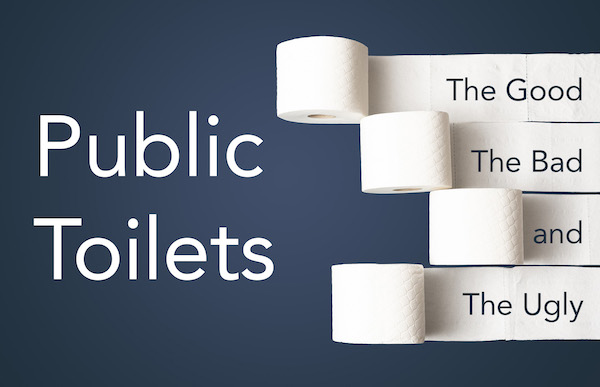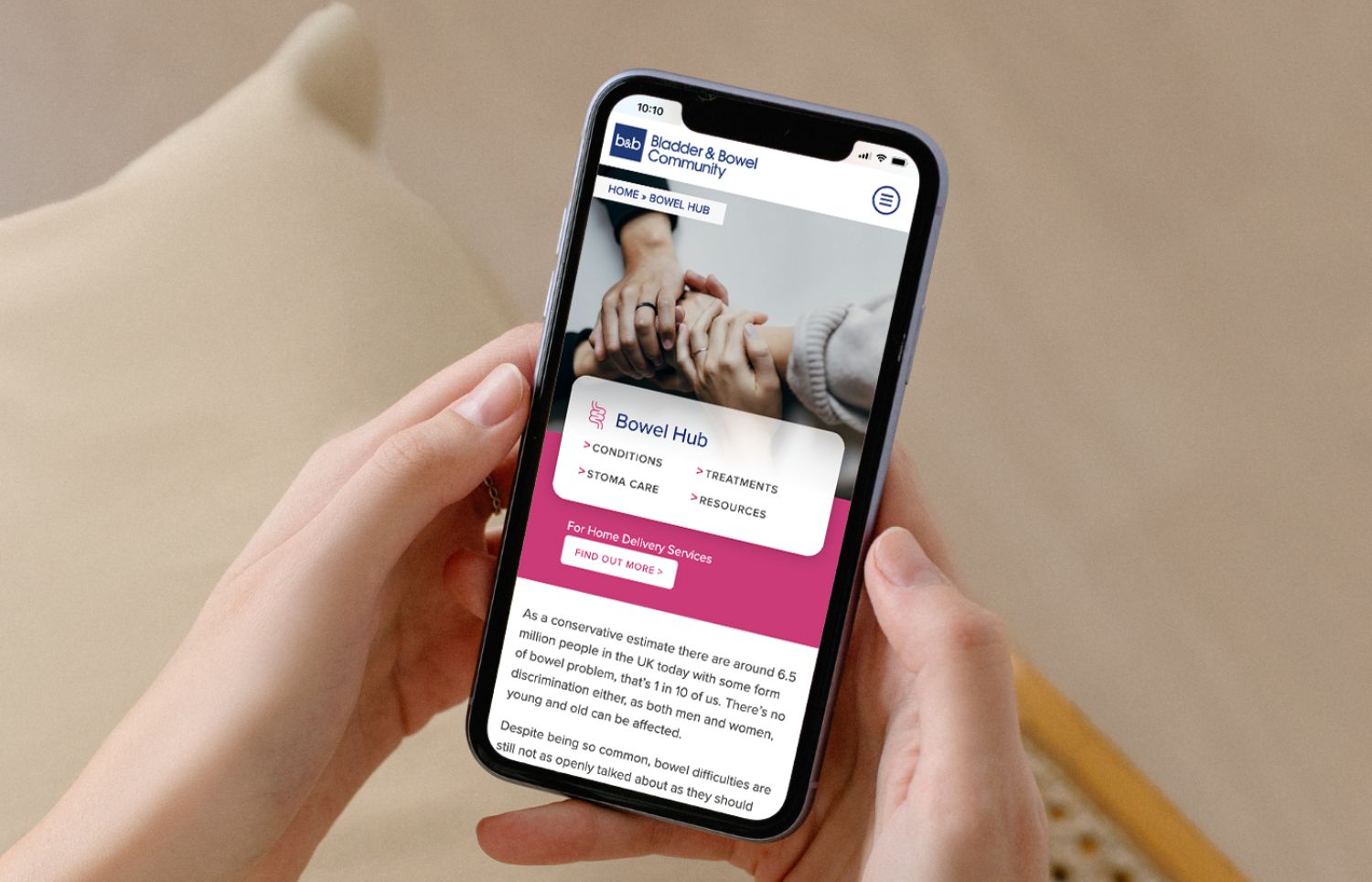Public Toilets are never going to be a glamorous topic. Nevertheless, we all need to use them.
Britain is often remarked for being a reserved nation, especially around topics such as our bodily functions. Whatever shyness there may be however, we all still need ‘to go’ at some point. Segway to social media forums for Bladder and Bowel Conditions and of course such reservedness makes way for real people, in very real need of toilet facilities.
Back in 2018 it was reported that public toilets had reduced by 39% in just 12 months1, but our very human needs have not diminished with the reduction in facilities.

Toilets are not a nicety – they are a necessity.
Of course, some people have much more urgent needs than others. Take someone living with IBS for example, who may need to get to a toilet with little notice – and the devastating aftermath (heaven forbid) should they be refused.
Bladder & Bowel Community member David James told us:
“Before being diagnosed, I used to suffer with diarrhoea due to lactose intolerance. There were times when I had to sprint home, dragging my girlfriend with me – or at times leaving her behind – because I just needed to get to a toilet quickly”.
These stories are all too common.
We asked community members what their thoughts were on public toilets in their area2, with responses proving a distinct lack of facilities in some areas, with others noting that many toilets are now charged for; ‘spending a penny’ (or twenty) seems very much here to stay.
Another community member told us,
“A lot of the public toilets in my area are still closed after Covid. Plus we’ve had our town centre re-done and one of the public toilets has disappeared”.
Others were a little more positive, such as Dave Taylor-Page who commented,
“I used one [toilet] at a train station a few weeks ago and they had a device on the wall that provided an audio description of the room layout – as a registered blind person I found this to be particularly helpful”.
The State of Public Toilets
Local councils are under pressure – and so are our bladders – to ensure public toilets are available and kept suitably clean. With the many challenges local authorities will be facing in a post-covid era, toilets often seem to be an afterthought.
Kettering had provided temporary toilets in the town centre as part of their response to the pandemic, however these are due to be removed at the end of April.
Public toilets on Circular Road in Bristol are due to be demolished, and a cafe to be built in its place – whether the cafe is open to community toilet schemes or will accept toilet cards is yet to be seen.
The Isle of Wight is demolishing existing toilet blocks at Ryde’s seafront, as part of the Ryde Interchange Transport Project – but these will be replaced by temporary facilities before new permanent toilets are installed in the nearby train station.
It is reasonable that local councils seem reluctant to provide facilities that are vulnerable to misuse – with Littlehampton in Sussex investing £30,000 in refurbishing toilets only to have them heavily vandalised with red graffiti paint. This forced the council to close the toilets again in order to repair the damage.
Some public toilets smell terrible, and others still are “notorious for dodgy conduct” as community member Jane Hasnip told Bladder and Bowel Community.
Yet there is some hope, with new toilets set to open in time for the tourist season in Queensferry in Scotland, which will see what were reportedly the only public toilets in the area – which had been removed by Fife Council – returned once more.
… but the effect does this is all actually having on people is huge.
What is being done to improve toilet access?
In a recent survey by Bladder & Bowel Community3, 96% respondents claimed ‘Effective Access to a Toilet’ as their number one concern, and greatest need for a toilet card.
Of the nearly 700 respondents to the survey many also commented that toilet cards are ‘great for toilet access’ whilst others noted that ‘cards are not always accepted’. There was an overriding theme of people taking every measure possible to ensure they can go about their lives without fear of getting ‘caught short’. In none of the comments were public toilets praised, with one comment stating that the ‘Standard of cleanliness is appalling!’
Toilet cards such as the Just Can’t Wait Card have become increasingly popular and necessary in the quest for confidence, freedom, independence and dignity. And as something people who live with a bladder or bowel condition can use to communicate clearly and discreetly, they are often referred to as a ‘lifeline’.
Simple improvements to toilets in general would help, such as offering a hook or shelf so that personal effects or sanitary items don’t have to be placed on the floor.
When it comes to anyone with additional needs however, the conversation gets a little more promising.
Zack Kerr who has cerebral palsy, has been campaigning for better toilet facilities for disabled people after struggling to find anywhere which offered privacy and dignity4.
On the 24th March 2022 the government announced more than £23.5 million in funding to 191 councils in England, to ensure facilities are accessible to all, with Changing Places toilets to be built in areas such as shopping centres, libraries and public buildings, places of interest and cultural centres such as galleries and theatres4.
With toilet cards becoming more prevalent, the focus needs to be on people’s needs, and enabling people to live with purpose and dignity, and for our bladder and bowels not to be reduced to an afterthought.
Local Council budgets for toilet facilities are under pressure – and so are our bladders.
References
1 The Guardian [https://www.theguardian.com/]
2 Bladder & Bowel Community Community Support Group provided their thoughts on public toilets in their area – in a question posed 05/04/22.
3 Bladder & Bowel Community conducted a survey via their Spring 2022 Newsletter, asking respondents what was most important to them regarding the Just Can’t Wait toilet card, with 693 responses.
4 UK Government Website [https://www.gov.uk/]









